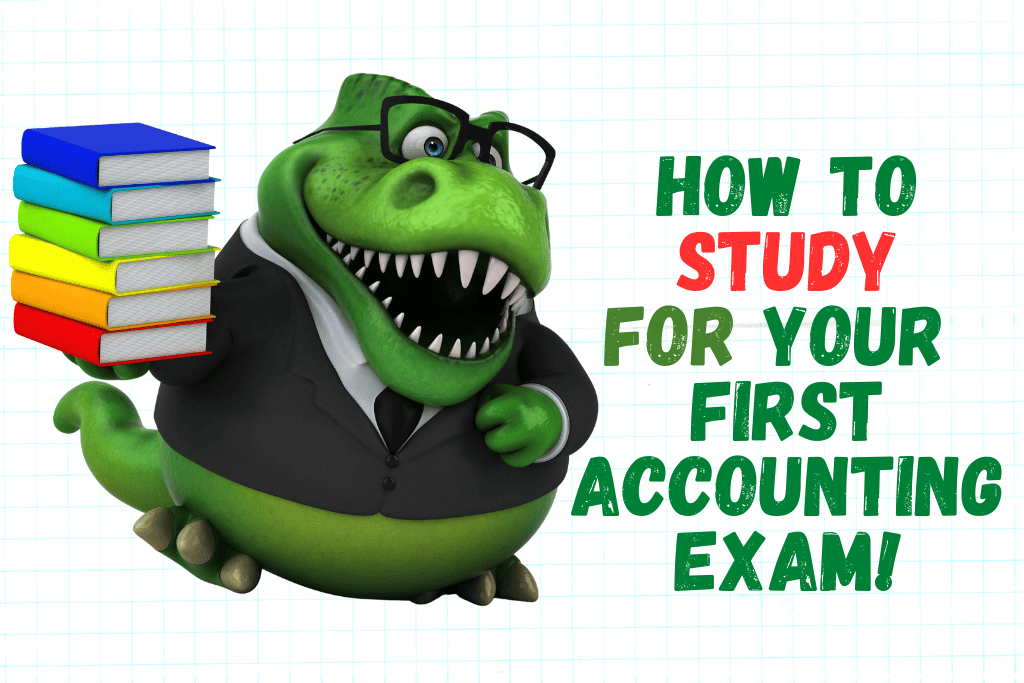Studying for your first accounting exam can be both exciting and a bit overwhelming. However, with the right approach and a positive attitude, you can master the subject and excel in your exam. Here are some helpful tips to prepare effectively for your first accounting exam. Let’s get started!
1. Understand the Fundamentals
Before diving into complex accounting concepts, make sure you have a strong grasp of the fundamental principles. Familiarize yourself with basic accounting terminology, such as assets, liabilities, equity, revenue, and expenses. Understand how they relate to each other and impact the financial statements.
Watch this video to help you know what to do first:
2. Create a Study Plan
Establish a study schedule that works best for you. Break down the accounting topics into manageable chunks and allocate specific study sessions for each. Consistency is key, so set aside a dedicated time each day or week for studying.
Watch this video for tips on how to study accounting:
3. Use Multiple Learning Resources
Accounting can be comprehended through various learning resources. Combine your textbook with online tutorials, videos, and interactive quizzes to reinforce your understanding. Different resources cater to different learning styles, so find what suits you best.
4. Practice with Exercises
Accounting is best learned by doing. Solve as many practice exercises and problems as you can get your hands on. This will help solidify your knowledge and prepare you for the types of questions you may encounter in the exam.
5. Seek Clarification
If you come across concepts that confuse you, don’t hesitate to seek clarification. Reach out to your instructor, classmates, or online accounting communities for help. Understanding these concepts early on will prevent misunderstandings from snowballing later.
6. Balance Theory with Application
While understanding accounting theory is crucial, don’t forget to apply it practically. Real-life scenarios often differ from textbook examples, so try to apply accounting principles to real-world situations. This will enhance your problem-solving skills and analytical thinking.
7. Group Study
Consider forming a study group with your classmates. Explaining concepts to others can deepen your understanding, and hearing their explanations might help you grasp certain topics better. Additionally, group discussions can make studying more enjoyable and less isolating.
8. Use Flashcards
Create flashcards for essential accounting terms, formulas, and concepts. Reviewing these regularly will reinforce your memory and make it easier to recall information during the exam.
9. Take Breaks and Stay Healthy
Studying for long hours without breaks can be counterproductive. Take short breaks to refresh your mind and prevent burnout. Also, ensure you get enough sleep, eat well, and exercise regularly. A healthy body and mind will help you stay focused and retain information better.
10. Mock Exams
Before the actual exam, attempt mock exams under timed conditions. This will simulate the exam environment and help you gauge your readiness. Identify areas where you struggle and work on improving them.
11. Stay Positive and Confident
Believe in yourself and your abilities. Stay positive throughout your preparation journey. Confidence plays a crucial role in how you perform in the exam. Visualize yourself succeeding and tackle the exam with a can-do attitude.
12. Review, Review, Review
In the days leading up to the exam, focus on reviewing your notes and summaries rather than trying to learn new concepts. Repetition is an effective way to retain information, and reviewing regularly will boost your confidence.
13. Exam Day Prep
On the day of the exam, make sure to get a good night’s sleep. Eat a balanced breakfast to fuel your brain. Arrive at the exam venue early to avoid any unnecessary stress. Read the questions carefully during the exam and manage your time wisely.
Remember, your first accounting exam is just the beginning of your accounting journey. Embrace the learning process and use this opportunity to build a strong foundation for your future studies and career. Good luck, and you’ve got this!

